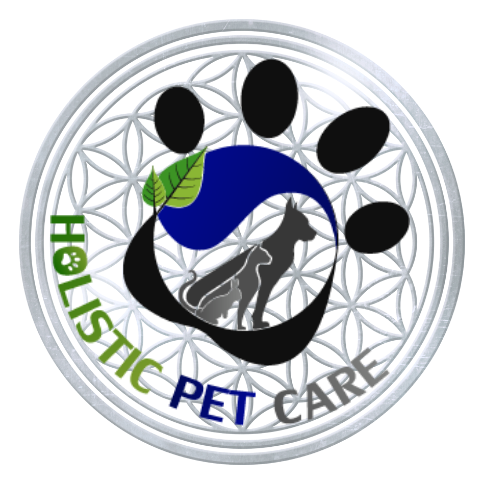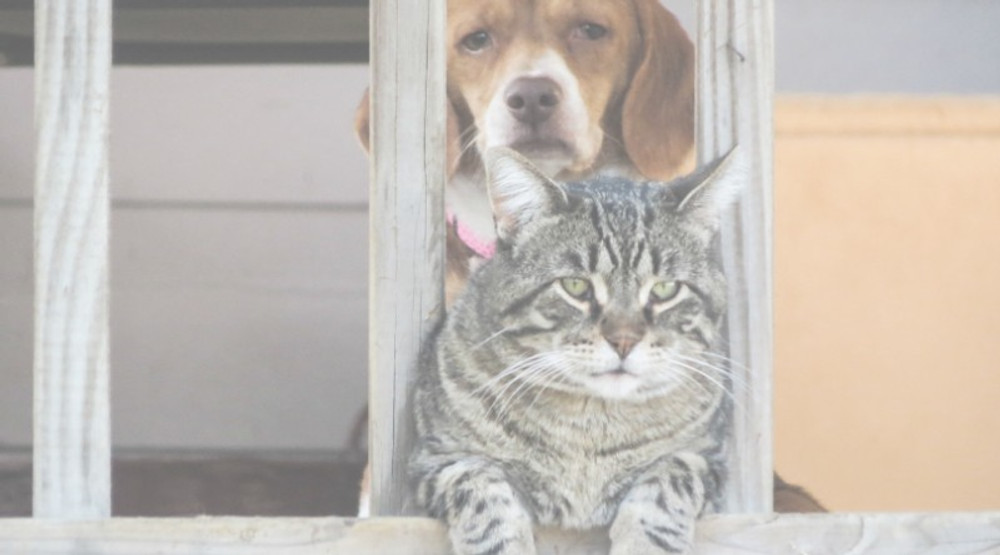Caring for Senior Dogs and Cats, Holistically
Posted by Rhonda Jewel on Jan 11, 2021
Our domestic animals are not just pets in most cases, they are more like our children in fur bodies.
Making sure they are thriving and at their best is as important to us as it is with our human children and grandchildren.
In this day and age it is not always easy to make the right choices for our families, furry or otherwise, especially as they age, and begin to become less manageable then before in their youth.
Outside of the many common types of eldercare treatment - there is another tactic to consider for helping to improve the health of your older dog or cat and that is holistic pet care.
Tips for Caring for Senior Dogs and Cats, Holistically
One of the most basic things you can do is love your fur senior. Our older dogs and cats innately know when you are uncomfortable with them. The twilight years or months in pets is nothing to be uncomfortable or stressed about. If your senior dog or cat has any serious medical concerns or issues that is affecting their health, do have a consultation with your holistic veterinarian.
Caring for our elderly pets can be challenging at times, especially if your senior pet has a chronic medical situation going on or shows difficult behavior fluctuations.
Many older pets are dealing with one type of cancer or another. Holistic methods recommends treating the symptoms of the cancer with natural remedies and alternative therapies. Instead of loading an elderly pet with pharmaceutical treatments.
Many pet parents are becoming familiar with the naturopathic approach, a philosophy that the body’s natural state is one of radiant, vital, high vibe health and that anything less is due to an overstrained and minimally functioning immune system.
I recommend the holistic method of clearing - cleansing- then building a HighVibe Immunity.
This method recommends clearing the home environment of all possible toxins/ or carcinogens that can include fabric softeners, dryer sheets, air fresheners, chemical rug cleaners, microwave oven usage, monthly flea and tick medications, and kibble feeding, rawhide chews to name just a few.
Another holistic treatment approach is to cleanse both the senior pet’s physical and emotional bodies of lingering toxins with adding added herbs to the diet, some specific homeopathic remedies and Bach Flower Remedies.
Building their aging body nutritionally by switching from the vet recommended kibble to a species appropriate raw diet with nutritional treats, glandular supplements, medicinal mushrooms, probiotics, colostrum, bone broth and other superfoods.
Possible behavior concerns in Aging Pets
- Constant or often crying or other vocalization
- Puzzlement or confusion regarding normal situations
- Disoriented, confused or distressed
- Amplified reaction to noise
- Reduced interaction w/humans
- More irritable, vicious, growling, biting
- Less response to commands
- Protective behavior
- More anxiety
- Pottying in the house
- Less self-hygiene/grooming
- Recurring activity like going around in circles
- Wandering more often, bumping into things
- Alteration in sleep routine
Our older pets need increased attentiveness. Most likely at very least changes in their diet, and in some cases changes in their home situation.
Depending on your pet these tips may help:
10 Tips to Help Senior Dogs and Cats Live a Better End of Life
- Keep an eye out for any new changes in their behavior
- Change your pet’s diet to a raw grind that is easier for them to eat
- Add bone broth
- Keep your pet moving and active
- Keep an eye out for signs of joint pain, lumps, bumps or pain in general
- Make your home elder-pet able
- Be easy-going, kind and loving with them- (don’t feel sorry for them-they feel it)
- Assist when needed to help your pet stay tidy
- Look for any signs of cognitive breakdown
- Be aware on your pet’s quality of life – when it is less quality and more difficult to be alive it is time for the next step.
Hospice Care For Aging And Dying Pets
Ella Bittel, Holistic Veterinarian, says, “All we animal lovers ever want is to do the best for our animal. When it comes to dying, what is best can be more complex than euthanizing. There is a way to come to peace with the dying process and discover its life enriching value. Animals can teach us about this if we let them”.
Being conscious and connected to our pets as they begin the end of their life's journey can be one of the most difficult, and yet rewarding, experiences we have ever been through. Fortunately, there are trained hospice workers for pets who can assist in this process with our animals and help them to fully live out their natural existence, while allowing them to pass peacefully in their own natural way in their own time, preferably in their own peaceful home.
Of course in some situations when the dying pet’s comfort cannot be sustained in spite of the best possible home care, euthanasia may still be the best and most humane end solution. However enlisting the high quality hospice-care practitioner for animals is a wonderful end of life option to be aware of.
To have the option of euthanasia available to end your pet’s life when that time comes can be a great service. However, most of our dogs and cats have an amazing will to live out their natural lives even if they have to go through the physical pain of it all.
It is easy for us to want to get it over with for the sake of our suffering pet. Being uneducated about the process of dying makes one feel helpless and unsettled, with final decisions to be made during a state of duress.
Make sure to look into the wonderful world of conscious dying for your beloved animals, as well as all the other amazing natural healing modalities that can be incorporate into a daily routine for vital dogs and cats.
Make sure to incorporate the “Eight Laws of Naturopathy”
1. Nutrition is the cornerstone. All species MUST eat what they were designed to eat in order to thrive. In nature, food is not cooked. It is raw and readily bio-available according to each species' unique anatomy and physiology.
2. Exercise is never optional. Animals (and humans) were meant to move DAILY. In the wild foraging and hunting – depending on the species – is done daily. Movement is needed to find food, to grow and stay strong, to move toxins from the body.
3. Water - Always give pure, fresh, unadulterated water. Avoid water that treated with chlorine, fluoride or other toxins.
4. Sun- The nocturnal hedgehog, when sick, will go out in the sun during the day to help itself heal. Supplements are often times needed due to depletion of the soils which translates into nutrient lacking food for herbivores which translates into lack of nutrients in omnivores and carnivores. Supplements, however, need to be used in moderation and qualified for each animal's unique needs.
5. Temperance- is an old-fashioned word for moderation.
6. Air- Every living thing needs fresh air daily, if possible, and to be outdoors! Animals need to get outside to breathe in fresh air.
7. Rest- Get plenty of rest without all the noise of modern appliances and electronics that interfere with deep rest and bio-rhythms; stress can bring about illness and behavior problems.
8. Trust- A Healing Crisis is a natural occurrence and is part of the detoxification process. The process is referred to as a crisis simply because the body displays illness-like symptoms at a time when it is actually healing itself and the vital energy begins to repair and rebuild clogged or damaged internal organs.
Ensure that your best friend will live a healthy, happy life, right up until the time of crossing to the happy hunting ground.

